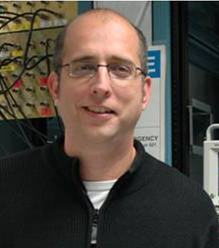Data
A note from the Director, Hendrik Schatz

Dear Members of the JINA-CEE Community and Friends,
I would like to take this opportunity to highlight and express my appreciation for the tremendous contributions of early career scientists, in particular students and postdocs, to the ongoing success of JINA-CEE. None of the science highlights in this newsletter would have been possible without their scientific contributions. We are proud that today more than 200 students and postdocs are part of JINA-CEE, and some are introduced in this newsletter. This bodes well for the future of the field of nuclear astrophysics. We have worked hard to create opportunities for engagement and professional development for young scientists across disciplines and I continue to be impressed by the response to these opportunities. Highlights entirely organized by young scientists include the online-seminar series, the annual collaboration meeting "Frontiers in Nuclear Astrophysics", or the Junior Workshop at the JINA Horizons Conference in December 2020. Along these lines, a new partnership with minority serving institutions across the US is focusing on introducing under-graduate students to cutting edge research in nuclear astrophysics (see article in this letter). Recently JINA-CEE also strengthened its international connections considerably with the NSF supported IReNA network and I am happy to report that students and postdocs took advantage of this opportunity to initiate an international young researchers network. If you are interested in join-ing this network contact Rahul Jain at Michigan State University or Camilla Hansen at MPA Garching in Germany. If you are an early career scientist in nuclear astrophysics I encourage you to explore opportunities offered by JINA-CEE and IReNA. I always look forward to hearing from you about new ideas, and how we can improve support for early career scientists further.
